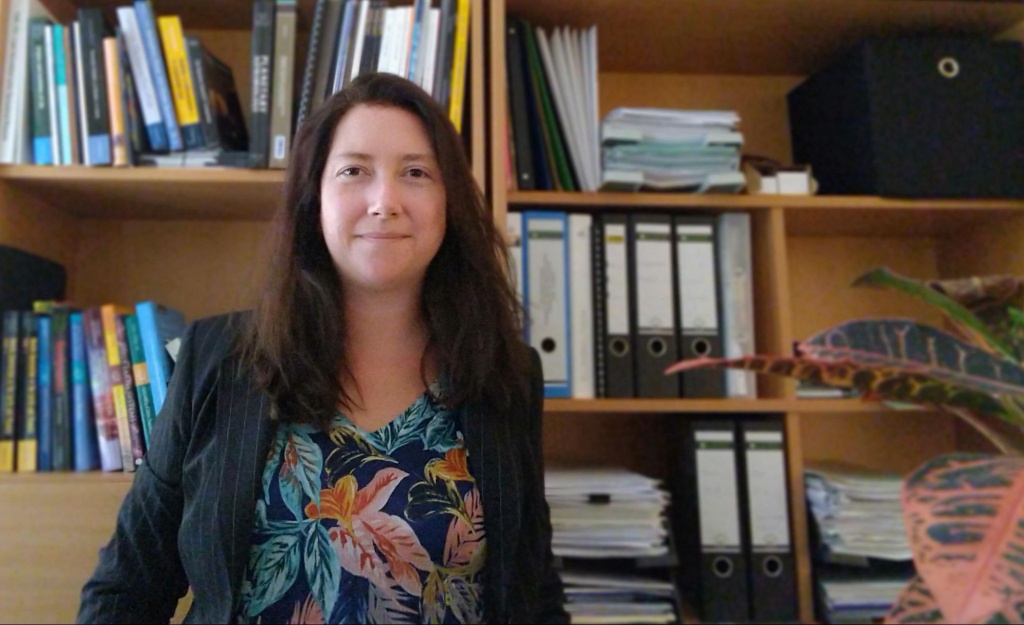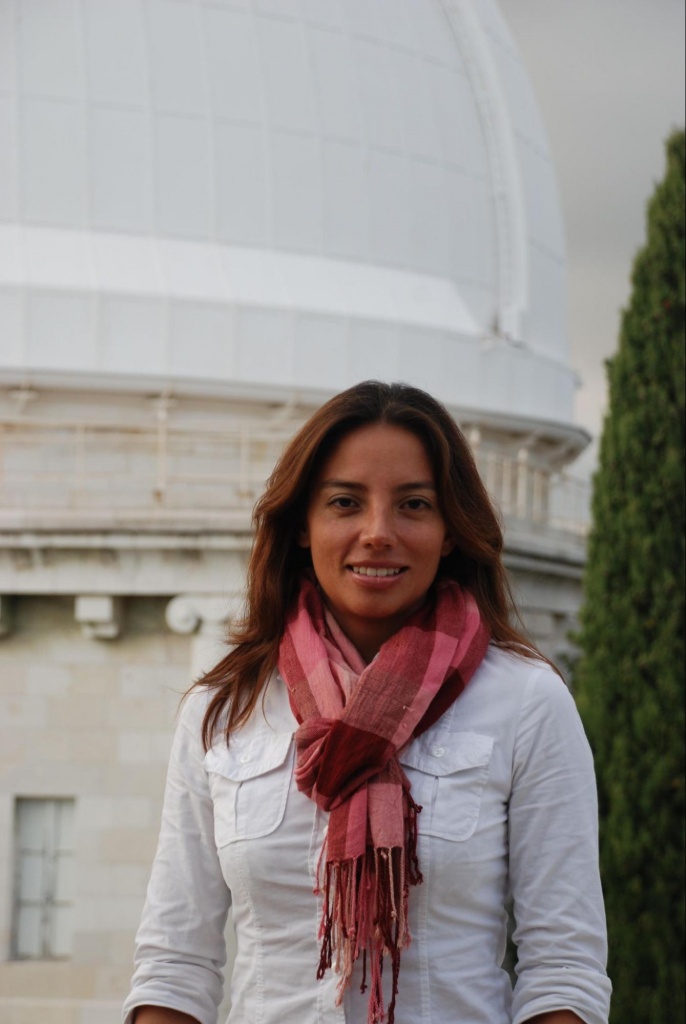2021 Farinella Prize Awarded to Diana Valencia and Lena Noack
Prof Diana Valencia, a physicist working at the Department of Physical Sciences and of the University of Toronto, and Prof Lena Noack, a planetary scientist working at Department of Earth Sciences at Freie Universität Berlin, have been awarded jointly the 2021 Paolo Farinella Prize for their significant contributions in our understanding of the interior structure and dynamics of terrestrial and super-Earth exoplanets. The award ceremony will take place today during the EPSC2021 virtual meeting and will be followed by 15-minute prize lectures by each of the winners.
The annual prize was established in 2010 to honour the memory of the Italian scientist Paolo Farinella (1953-2000) and, each year, it acknowledges an outstanding researcher not older than 47 years (the age of Farinella when he passed away) who has achieved important results in one of Farinella’s fields of work. Each year the Prize focuses on a different research area and, in 2021, the eleventh edition was devoted to the thriving field of study of exoplanets, i.e. planets orbiting stars other than the Sun.
Prof Valencia’s pioneering work developed the first interior model and the first mass-radius relationship for rocky exoplanets (1-10 Earth masses) and stimulated high pressure-temperature experiments used to study how atoms bind together in the interior of super-Earths. She also began to address the question of the possibility of plate tectonics on super-Earths and triggered a controversial discussion that continues to this day. In addition, she addressed the issue of the composition of this new category of planets, essential for robustly comparing them to the Earth and other Solar System bodies. In particular, her work on the exoplanet GJ 1214 b has strongly motivated atmospheric observations of super-Earths to better determine their compositions.
Prof Noack has studied the long-term evolution of terrestrial planets inside and outside the Solar System, from processes that take place in their interior to those that characterise their surface, like the mechanism of resurfacing (e.g. through plate tectonics) and volcanic activity, to those influencing the build-up and replenishment of their atmosphere. An important contribution of her work shows how the actual bulk composition of a rocky planet can influence its evolution – in the interior as well as at the surface of that planet. Her work represents an important example of a bridge between different disciplines and communities: geoscience, astronomy and astrobiology.
Overall, Prof Valencia’s and Prof Noack’s theoretical work has led to a deeper understanding of the composition and evolution of Earth-like exoplanets. Their work is critical to assess the habitability potential of exoplanets and to determine how ‘Earth-like’ a small exoplanet is.
Prof Valencia received her MS in Physics at University of Toronto and her PhD in planetary science at Harvard University. She is currently an Associate Professor at the Department of Physical Sciences of the University of Toronto.
After studying mathematics, Prof Noack worked at the German Aerospace Center at the Institute of Planetary Research in Berlin, Germany. She received her doctoral degree from the University of Münster and currently holds the position of an Associate Professor for geodynamics and mineral physics of planetary processes at the Freie Universität Berlin.
Before receiving the Prize, Prof Valencia commented: ‘I am honoured to receive this prize, as it recognises my contributions to the field of super-Earths. I have seen the field grow from not knowing anyone else studying these planets when I was a PhD student, to a flourishing research field attracting numerous young scientists. It feels particularly special to be recognised in the research field I helped to grow from the beginning.’
Prof Noack said: ‘I am very honoured to receive this prize alongside Diana Valencia. The research field of rocky exoplanets is still a young field, and the topic being selected for this year’s prize in honour of Paolo Farinella is an important recognition.’
About the Paolo Farinella Prize
The Paolo Farinella Prize (https://www.europlanet-society.org/paolo-farinella-prize/) was established to honour the memory and the outstanding figure of Paolo Farinella (1953-2000), an extraordinary scientist and person, in recognition of significant contributions given in the fields of interest of Farinella, which span from planetary sciences to space geodesy, fundamental physics, science popularization, and security in space, weapons control and disarmament. The winner of the prize is selected each year on the basis of his/her overall research results in a chosen field, among candidates with international and interdisciplinary collaborations, not older than 47 years, the age of Farinella when he passed away, at the date of 25 March 2000. The prize was first proposed during the “International Workshop on Paolo Farinella the scientist and the man,” held in Pisa in 2010, supported by the University of Pisa, ISTI/CNR and by IAPS-INAF (Rome).
The first “Paolo Farinella Prize” was awarded in 2011 to William Bottke, for his contribution to the field of “physics and dynamics of small solar system bodies”. In 2012 the Prize went to John Chambers, for his contribution to the field of “formation and early evolution of the solar system”. In 2013, to Patrick Michel, for his work in the field of “collisional processes in the solar system.” In 2014, to David Vokrouhlicky for his contributions to “our understanding of the dynamics and physics of solar system, including how pressure from solar radiation affects the orbits of both asteroids and artificial satellites”, in 2015 to Nicolas Biver for his studies of “the molecular and isotopic composition of cometary volatiles by means of submillimetre and millimetre ground and space observations”, and in 2016 to Kleomenis Tsiganis for “his studies of the applications of celestial mechanics to the dynamics of planetary systems, including the development of the Nice model”. In 2017, to Simone Marchi for his contributions to “understanding the complex problems related to the impact history and physical evolution of the inner Solar System, including the Moon”. In 2018, to Francis Nimmo, for his contributions in our “understanding of the internal structure and evolution of icy bodies in the Solar System and the resulting influence on their surface processes”. In 2019, to Scott Sheppard and Chad Trujillo, for their outstanding collaborative work for the “observational characterisation of the Kuiper belt and the Neptune-trojan population”. Finally, in 2020, to Jonathan Fortney and Heather Knutson for their significant contribution in our “understanding of the structure, evolution and atmospheric dynamics of giant planets”.
Images

https://www.europlanet-society.org/wp-content/uploads/2021/09/Lena_Noack_Credit_L.Noack_.jpg

https://www.europlanet-society.org/wp-content/uploads/2021/09/Diana_Valencia.Credit_D.Valencia.jpg
Science Contacts
Prof. Diana Valencia
University of Toronto
Department of Physical Sciences
Department of Astronomy
1265 Military Trail, ON, M1C 1A4, Canada, Canada
T +1 (416) 208 2986
valencia@astro.utoronto.ca
astro.utoronto.ca/~valencia/
Prof. Dr. Lena Noack
Freie Universität Berlin
Department of Earth Sciences
Malteserstr. 74-100
Room D210 – Building D
12249 Berlin
Tel.: +49 (0) 30 838 636 94
E-mail: lena.noack@fu-berlin.de
Media Contacts
EPSC2021 Press Office
epsc-press@europlanet-society.org
About the Europlanet Science Congress (EPSC)
The Europlanet Science Congress (https://www.epsc2021.eu/) formerly the European Planetary Science Congress, is the annual meeting place of the Europlanet Society. With a track record of 15 years, and regularly attracting around 1000 participants, EPSC is the largest planetary science meeting in Europe. It covers the entire range of planetary sciences with an extensive mix of talks, workshops and poster sessions, as well as providing a unique space for networking and exchanges of experiences.
Follow on Twitter via @europlanetmedia and using the hashtag #EPSC2021.
EPSC2021 is sponsored by Space: Science & Technology, a Science Partner Journal.
About Europlanet
Since 2005, Europlanet (www.europlanet-society.org) has provided Europe’s planetary science community with a platform to exchange ideas and personnel, share research tools, data and facilities, define key science goals for the future, and engage stakeholders, policy makers and European citizens with planetary science.
The Europlanet 2024 Research Infrastructure (RI) has received funding from the European Union’s Horizon 2020 research and innovation programme under grant agreement No 871149 to provide access to state-of-the-art research facilities and a mechanism to coordinate Europe’s planetary science community.
The Europlanet Society promotes the advancement of European planetary science and related fields for the benefit of the community and is open to individual and organisational members. The Europlanet Society is the parent organisation of the European Planetary Science Congress (EPSC).

